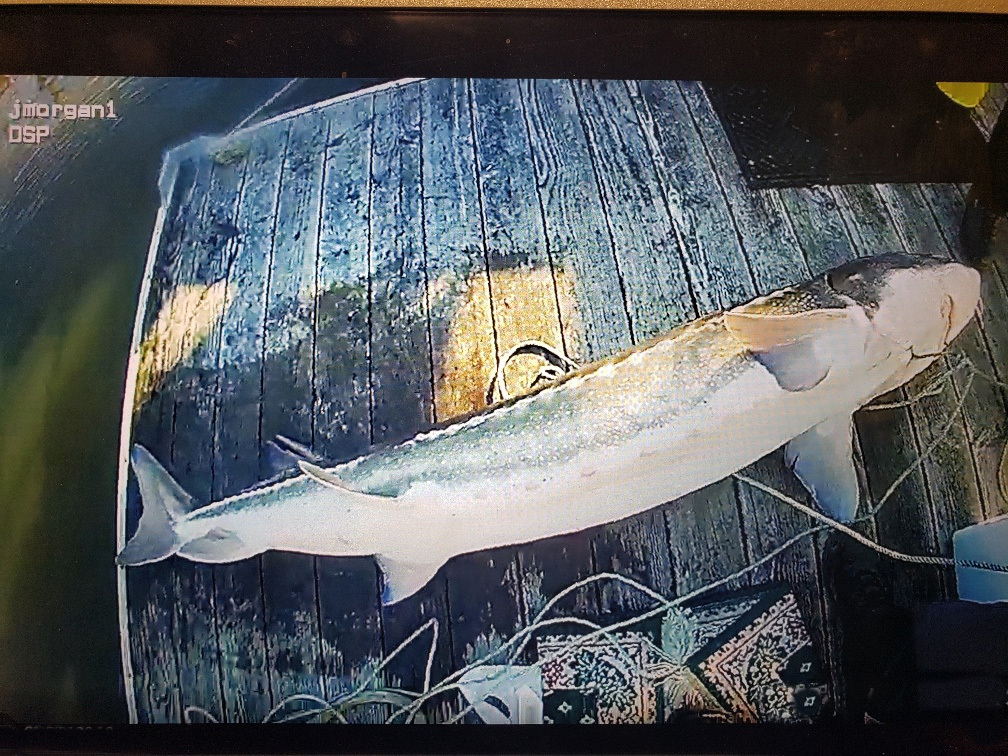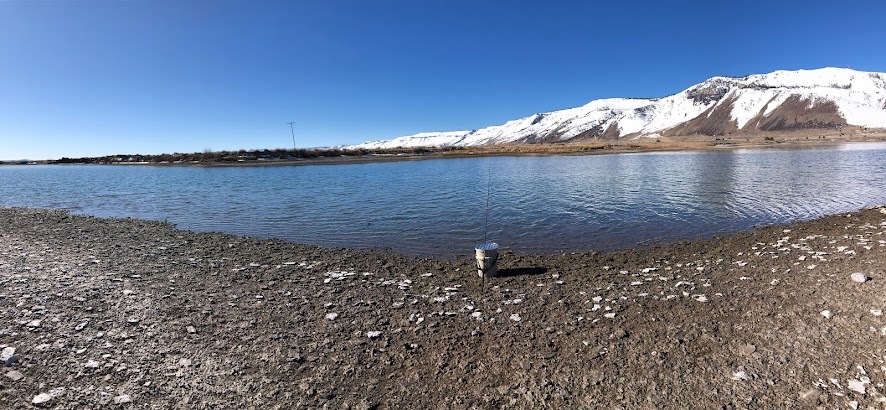Idaho Fish Report
Sturgeon poachers serve jail time and pay thousands in restitution

by OR Department of Fish & Wildlife Staff
2-27-2024
Website
St Helens, Ore. — Three men owe thousands in fines, and one served jail time after a felony conviction for poaching five oversized sturgeon fish, including one giant white sturgeon, in Scappoose Bay in 2022.
The original incident gained attention in 2022 when sportsmen fishing along the banks of Scappoose Bay noticed people fishing from a boat had caught a sturgeon but did not release it as required by law. The legal anglers reported what they saw to OSP Fish and Wildlife Troopers, who began monitoring the area. After two days of surveillance, Trooper Scott Bernardi and Senior Trooper Justin Morgan, both from the St Helens office, approached the men where they were moored at the dock.
The subjects claimed that they had not caught any fish. However, Troopers could see two lines extending from the dock into the water. When they pulled up the lines, they found four live sturgeon, ranging in size from five feet to more than seven feet long. All four were secured under water so they would remain alive. While inspecting the boat, Troopers found an additional large white sturgeon, about five feet long.
Julio Duran, of Salem, pleaded guilty to take/possession of a giant white sturgeon, which is a Class C Felony, and take/possession of four oversized sturgeons, which is a Class A misdemeanor. He pleaded guilty to fishing without a license, although officials dropped charges for fishing with illegal barbed hooks. Duran served 20 days in the Columbia County jail and owes $5,000 in restitution to ODFW; $500 to the Turn In Poachers TIP reward program; 36 months’ probation, and a three-year angling license suspension. He forfeited the fishing rods and equipment used during the crime.
Jose Plascencia, of Dayton, pleaded guilty to fishing without a resident angling license. Plascencia must serve either 10 days on a Columbia County work crew, or 80 hours of community service, and 24 months of bench probation. He must pay $750 in restitution and is suspended from fishing for three years.
Axel Guell, of St Helens, pleaded guilty to angling without a resident license. Guell must pay $500 in restitution, serve 24 months bench probation and is suspended from fishing for three years.
Senior Trooper Justin Morgan is pleased with the dedicated effort of the Columbia County District Attorney’s Office to pursue charges and bring poachers like this to justice.
“This poacher spent 20 days in jail over the holidays in hopes of changing his behavior. Luckily, the quick-thinking juvenile sportsmen were able to report what they witnessed to the Oregon State Police, through the TIP line, and we were able to apprehend this individual and release the large sturgeon back into the bay,” he said.
All five sturgeon were released back into the bay alive, which is a relief to conservationists. White sturgeon, once plentiful in Oregon waterways, are a Pacific Northwest icon. Sturgeon are long-lived and revered as “living fossils” because they have remained nearly unchanged since they first evolved around 200 million years ago.
White sturgeon fisheries in the lower Columbia and Willamette rivers can currently generate between 30,000 – 40,000 angler trips annually, which contribute millions in economic benefits. In recent years, lower populations of the slow-growing fish preclude taking one home for a meal. But anglers can still catch and release the massive fish, which provides the thrill of the experience.
An 80-year-old giant sturgeon like the one Duran poached is a valued contributor to the breeding stock. Sturgeon don’t reach breeding maturity until they are about 20 years old, and about six feet long. They can live more than 100 years. Older female sturgeon can produce ten times the number of eggs as young females. Poachers who take these giants contribute to an ongoing reduction of the fishery.
Catching poachers is a collaborative effort that often begins with lawful citizens doing the right thing and reporting suspicious behavior, according to Morgan, and recently another youth reported a poaching incident that resulted in criminal citations. Morgan is proud to live in a community that values the state’s natural resources.
“These recent acts by young sportsmen to protect wildlife is a testament to values of young Columbia County residents and is a direct reflection of their parents and mentors,” Morgan said, “A game warden’s biggest asset is the public doing the right thing by reporting poaching incidents.”
The legal fishermen who reported the crime received bonus rewards of $500 each through the Turn In Poachers (TIP) Reward Program. The program offers cash rewards or hunter preference points to people who report fish and wildlife crimes that result in an arrest or citation.
Turn In Poachers campaign coordinator Yvonne Shaw states the importance of the TIP Line.
“The TIP Line is a key tool to fight poaching,” she said, “People who call the TIP Line to report poaching or suspected poaching, can remain anonymous and they also can get cash rewards or hunter preference points if their tip leads to an arrest or citation.”
The Protect Oregon’s Wildlife- Turn In Poachers campaign educates the public on how to recognize and report poaching. This campaign is a collaboration among state agencies, sportsmen and other conservationists, landowners, and recreationists to engage the public in combatting Oregon’s poaching problem. Our goal is to: Incentivize reporting on wildlife crimes through the TIP Line; Strengthen enforcement by increasing the number of OSP Fish and Wildlife Troopers; and Support prosecution in becoming an effective deterrent. The campaign helps to protect and enhance Oregon’s fish and wildlife and their habitat for the enjoyment of present and future generations. Contact campaign coordinator Yvonne Shaw for more information. Yvonne.L.Shaw@odfw.oregon.gov.
If you know of or suspect other crimes against fish wildlife or habitat, please report to the Turn In Poachers (TIP) Line. 1-800-452-7888 or *OSP (*677) from a mobile phone. Or email: TIP@osp.oregon.gov.


